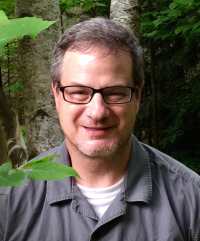Hate Speech Will Not Go Away Completely, But it Can Be Drowned Out with IndieVoices
In 1975, when I was ten years old, my family came home from a vacation to find our house in Augusta, Georgia, vandalized with swastikas and anti-Jewish epithets on the walls. We were not robbed. Nothing was stolen. Instead, the only purpose was to threaten us with hateful words and symbols.

We were one of only a few Jews in town, and we were known for not standing with the other white families against a school busing desegregation order a few years earlier. Most likely, this was a act of retaliation, though we were never sure. I do know that we moved to Michigan shortly afterward and the memory of the horrible incident faded.
Until now.
Forty-one years later, with Donald Trump about to assume office as president, the memory of this violation of our home is vividly coming back to me. I can’t help but feel that the White House—which is also my home in the same way that it belongs to all Americans—is about to be desecrated by people who stand for the kind of detestable values that forced my grandfather to flee to America from the Holocaust in Hungary.
This is why I take Trump’s election so personally. My life since 1975 has been pretty much swastika-free, I’m happy to say. But, like many American Jews during the 2016 campaign, swastikas, anti-Semitic graffiti, and anti-Jewish epithets suddenly appeared in my Twitter timeline, scrawled there by Trump supporters. It’s 1975 all over again.
As a father, I tell my children that the president-elect is not a role model. In fact, they should do and say exactly the opposite. In our house, we do not scapegoat other people, we do not mock people or marginalize them because they are different. In our house, we strive to be kind to one another.
As a journalist, I know that hateful people have always existed. They’ve had their own publications, their own corners of the Internet. Now, they have the White House. The most difficult thing now is to accept is that the graffiti on the wall that violated my childhood home is now considered by many people to be acceptable, normal political speech on social media and in Washington. And the swastikas are spreading like a virus across the country in Jewish cemeteries, African-American churches, and playgrounds where diverse children play.
But here’s what we can do. Beginning today, and all through the month of December, I am very proud to launch a series in Foreword Reviews called #IndieVoices. Now, more than ever, our mission as a home for marginalized, independent voices, could not be more clear. Indie publishing serves many niches that are not served by the big publishing conglomerates because their audiences are perceived as too small to be significant. But these voices, many of which are marginalized, indeed, victimized, by the 2016 election and its aftermath, need to find larger audiences because the election was very much about them. A central theme that preceded Donald Trump’s election as president was his targeting of immigrants, Muslims, Latinos, the disabled, Jews, LGBTQ+, and others among society’s most vulnerable. It is, in some cases, literally a matter of life and death for these voices to be heard.
We can all do our part to correct this tragic error. What I can do as executive editor of Foreword Reviews is to invite more speech—seek out the words of the marginalized, the hated, the feared. It is not going to be easy, these next four years, but together we can blot out the hatred scrawled on the walls with our own humanity in all its beautiful diversity.

Howard Lovy is executive editor at Foreword Reviews. You can follow him on Twitter @Howard_Lovy
Howard Lovy
